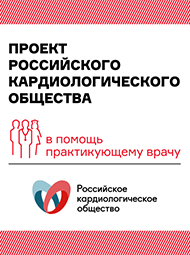Higher Cr Incidence Seen in HF Patients
Heart failure patients are more likely to be diagnosed with cancer than the general population, and the cancer is associated with a large excess risk of death, researchers found.
Among 1,922 patients, those with heart failure had a 68% higher risk of being diagnosed with cancer than matched controls after adjusting for body mass index, smoking, and comorbidities (hazard ratio 1.68, 95% CI 1.13-2.5), according to data from the Rochester Epidemiology Project in Minnesota.
And among the heart failure patients, incident cancer increased the risk of death (HR 1.56, 95% CI 1.22-1.99) adjusted for age, sex, year, and comorbidities, Veronique Roger, MD, of the Mayo Clinic in Rochester, Minn., and colleagues reported online in the Journal of the American College of Cardiology.
The risk of developing cancer also appeared to increase over time. The study looked at two 11-year spans. Patients diagnosed with heart failure between 1979 and 1990 had a 48% increased risk of cancer, while those diagnosed between 1991 and 2002 had an 86% increased risk.
At the start of the study, 22% of heart failure patients and 23% of controls had a history of cancer. During an average of 7.7 years of follow-up, 244 new cancer cases were identified. Types of cancer included: 48 of the digestive system, 46 male reproductive, 39 hematologic, 24 breast, 20 respiratory, 19 urinary, seven female reproductive, seven skin, and 34 other cancers.
Despite a similar incidence of cancer at the start of the study, by the 2-year follow-up those with heart failure had a 60% higher risk of developing incident cancer (HR 1.60, 95% CI 1.14-2.26) compared with controls and accounting for the matching variables. This remained unchanged after further adjustment for body mass index, smoking, and Charlson comorbidity index (HR 1.68, 95% CI 1.13-2.50).
Patients with heart failure diagnosed with cancer also had a 56% higher risk of death compared with heart failure patients who did not develop cancer (HR 1.56, 95% CI 1.22-1.99). Among the controls, those diagnosed with cancer had a 93% increased mortality risk compared with those who did not develop cancer (HR 1.93, 95% CI 1.51-2.46, P=0.18 for interaction between heart failure patients and controls).
The hazard ratios were similar for men and women with a trend toward a stronger association among patients 75 or younger (P=0.22) and those diagnosed with cancer most recently (P=0.075).
Men with heart failure had a nonsignificant 55% increased risk of developing incident cancer compared with men without heart failure (HR 1.55, 95% CI 0.85-2.80). Women with heart failure had a barely nonsignificant 71% greater risk (HR 1.71, 95% CI 0.99-2.95) after adjustment for body mass index, smoking, and Charlson comorbidity index.
"The study addresses a novel question that may have public health implications,"commented Anita Deswal, MD, MPH, and Sukhdeep S. Basra, MD, MPH, of the Baylor College of Medicine in Houston. "Noncardiac comorbidities in patients with [heart failure] are being increasingly recognized to significantly impact mortality and hospitalizations in [heart failure] patients, with the effect being even more pronounced in patients with [heart failure] and preserved ejection fraction."
Roger and colleagues suggested several possible causes for the increased risk of cancer in heart failure patients including side effects of cardiovascular treatments or stress from illness or other mechanisms associated with the physiology of heart failure such as inflammation.
The prevalence of prior cancer was similar in newly diagnosed heart failure patients compared with controls, they found. They evaluated the cohort without any history of cancer at index (596 pairs) for the development of incident cancer.
Deswal and Basra commented that alternative explanations needed to be examined before concluding that heart failure causes increased risk of cancer. More frequent exposure to healthcare may have resulted in more frequent screening, they wrote, suggesting an earlier diagnosis of cancer. Risk factors for cardiovascular disease are similar to those of cancer, they noted.
Source: www.medpagetoday.com






